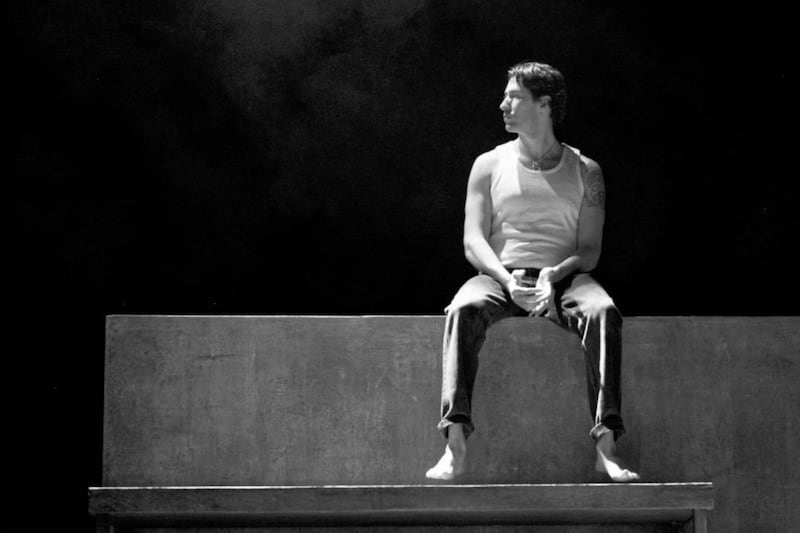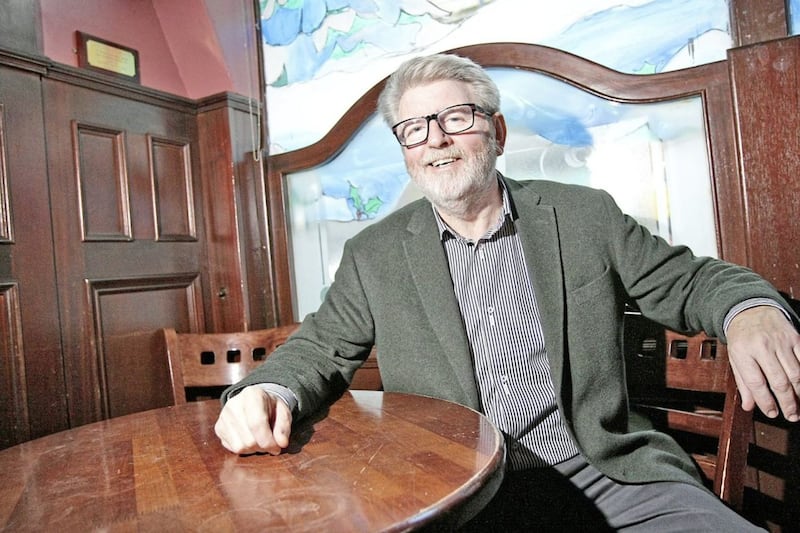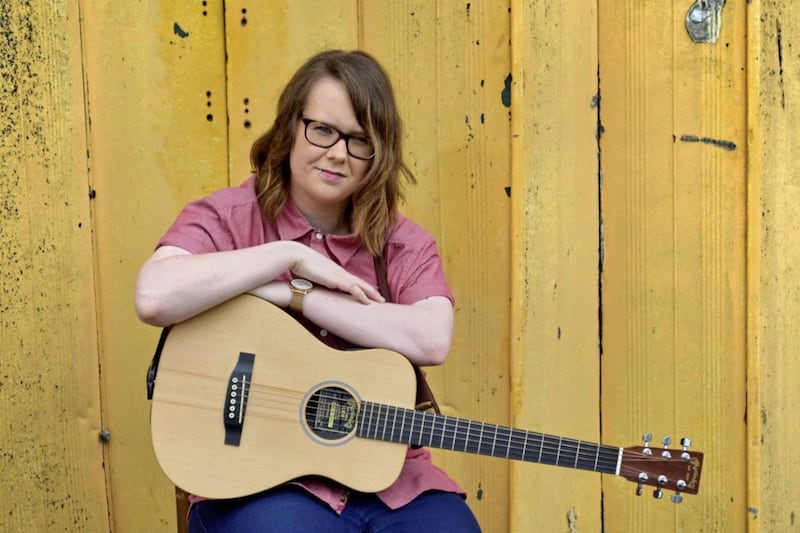ALTHOUGH Belfast playwright Martin Lynch has maintained a constant presence in the city's arts scene for well over 40 years, the ongoing global pandemic has forced even this most indefatigable character to take a step back.
After being in self-imposed lockdown for almost a year now, Lynch (70) is looking forward to taking part in the ongoing Out To Lunch festival with an appearance on a special live edition of the Best of Belfast podcast tomorrow afternoon.
"Matthew Thompson rang me and asked me to do it," explains the Belfast-born writer, director and producer.
"He's been doing these types of podcasts way before Out To Lunch, where he talks to all sorts of people. But he's actually stuck in Berlin, so it's all going to be done through Zoom."
The virtual chat is set to cover everything from Martin's early days creating community theatre in Turf Lodge and his breakthrough hit, 1982's Dockers, which established the overarching theme of his entire career – "articulating a voice for the working classes and actually getting them involved in making theatre as well as attending the theatre", as he puts it – to his involvement in starting Belfast's Cathedral Quarter ("not a lot of people know about that", he tells me) and his brushes with Hollywood stars like Mickey Rourke.
Lynch encountered the 1980s Hollywood heart-throb while working on the script for 1987 flop A Prayer For The Dying, from Get Carter director Mike Hodges. Adapted from the Jack Higgins novel, Rourke played alongside Liam Neeson and Bob Hoskins as an IRA man on the run in London after a Belfast bombing goes wrong.
"It's not a very good movie, but it was a great experience to be involved in a full-on Hollywood production with a top star," recalls Lynch.
"Mickey was a very interesting character to work with. He hated Hollywood and made no bones about it. His secretary told me that he had a sign on his trailer that said 'No mother******' ****suckin' executive producers allowed beyond this point'.
"When he came back with The Wrestler a few years ago, in his speech at the Baftas he said 'to any producers out there – please hire me: I'm not the guy I used to be, I won't be fighting with you', because he knew what he'd done with his career.
"But I liked him: he came to Belfast and spent the weekend with me and danced with my ma in the Turf Lodge Club."
Lynch has certainly had time to reflect on his own career during the past year: the pandemic put paid to his commercially orientated endeavours with GBL Productions – past hits include Hurricane, Dancing Shoes: The George Best Story, 50 Shades of Red, White and Blue and The History of The Peace According to my Da – cancelling their entire slate of Christmas pantos at Belfast's Waterfront Hall and the Marketplace Theatre in Armagh.
Covid also nixxed the most recent offering from the playwright's not-for-profit operation, Green Shoot Productions, which has previously staged thought-provoking shows like the international hit Chronicles of Long Kesh, Brenda Murphy's play Two Sore Legs, Sam Millar's Brothers In Arms and Lynch's own Meeting at Menin Gate and We'll Walk Hand in Hand.
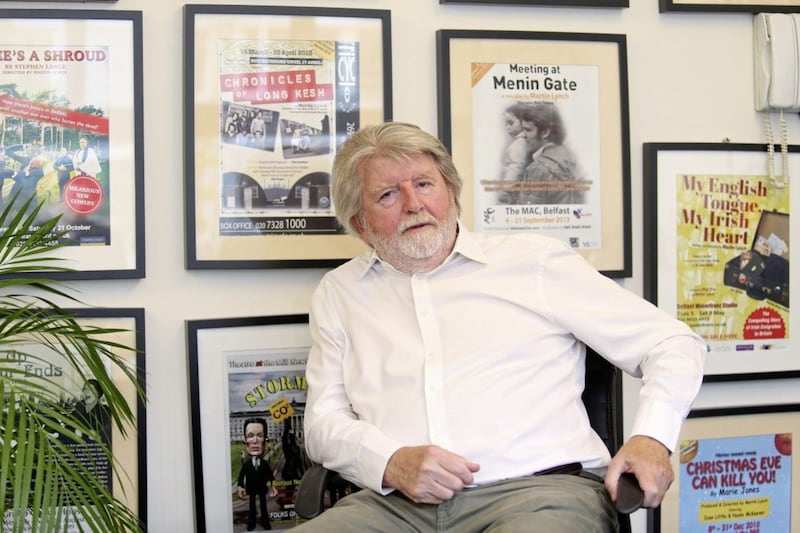
In The Name of The Son: The Gerry Conlon Story, a drama co-written by Lynch and journalist Richard O'Rawe based on the latter's titular book about the life of the late Guildford Four man, was just about to start its run at Belfast's Lyric Theatre in early March.
"We were actually the first big show in Northern Ireland to be cancelled," says Lynch of the production starring Co Down actor Shaun Blaney.
"We'd done a week of sold-out shows on tour and the play went down a storm – standing ovations in Armagh, Derry and Newry. We'd already sold 70 per cent of the tickets for the Lyric shows, but two days before the first preview, Jimmy Fay [Lyric executive director] and myself decided to cancel.
"That was prompted by myself, even though it was a disaster for us economically and otherwise: I had already gone into lockdown the Saturday before. I'm diabetic type 2 and I had major heart surgery about 15 years ago, so I would regard myself as vulnerable. There was no way I was going to ask people to go to a show that I wouldn't go to.
"When you write plays and run a production company, your whole life is geared towards that – it's what you live for. So that was very tough to take."
However, lifelong football fan Lynch – who used to play up front for Belfast Newsboys and has followed Arsenal since seeing Scottish striker Charlie Nicholas in action at Highbury in the 1980s – has managed to adopt a philosophical stance that will be familiar to anyone whose club has endured a prolonged period of poor performances.
"When you listen to the Premier League managers on TV, their attitude to life is just so spot on," he tells me. "'Yes, we got beat seven-nil there, but Monday's another day – and we go again'."
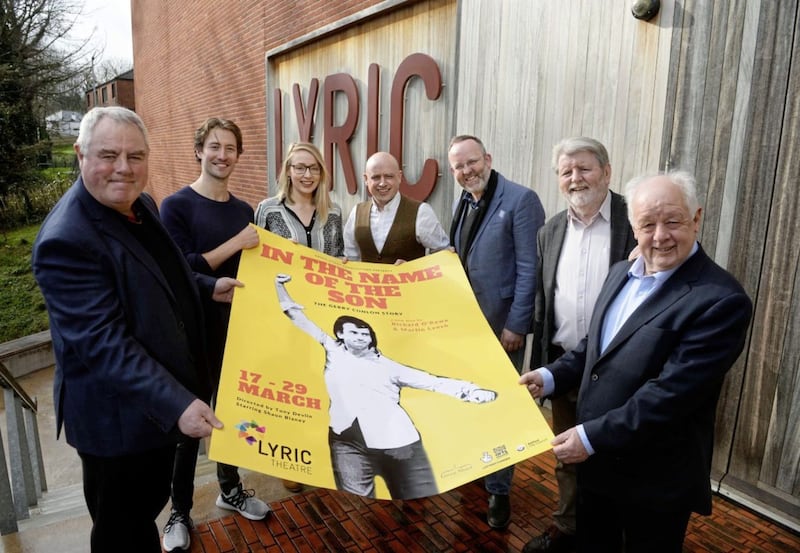
Although the Lyric is currently not planning to reopen until September at the earliest, Lynch says we definitely won't be getting an online streamed version of In The Name of The Son or any of his other upcoming productions affected by Covid – which include a new play from Derry actor/writer Diona Doherty ("her writing just sparkles on the page," Lynch enthuses) called Bridesmaids.
"I don't buy into that at all," he says of the virtual option. "When you see staged drama filmed, it never ever works – unless you've got the money of the National Theatre or the RSC where you can put four cameras on to the floor and almost treat it like a TV drama."
On the subject of finances, it seems emergency relief for the arts sector has helped organisations like Green Shoot to stay afloat during the lockdowns.
"Government money started to come through the Arts Council in July or August last year," explains Lynch.
"Most companies got £25k as a standard figure, which will enable us to put on In The Name of The Son again. Since then, there's another big whack of money which we've been asked to apply for – we're being told that will be decided on January 31. We're very hopeful that both Green Shoot and GBL might get something."
And, while much has been made of lockdown being a boon for creative types in terms of providing extra free time in which to indulge their creativity, the veteran playwright reveals that he has seized the opportunity to take it easy for a change.
"Incredibly, I haven't done anything of a significant nature through all of this," admits Lynch, who was thrilled to be elected to the respected Irish artists association Aosdána in October last year.
"It's just been great. I remember when I was writer in residence up at the University of Coleraine from 1985 to 1988: I'd been working non-stop on plays since probably 1976 in Turf Lodge and then full-time as resident at the Lyric creating new work, so by the time '85 came around I was just delighted to do nothing for a year or two.
"That seems to have happened again during this lockdown – but I am doing wee notes here and there as I've promised myself I'm going to get back to a wee book I'm writing."
If you want to know more about that and the rest of his illustrious career, you'd best listen to the Best of Belfast podcast tomorrow.
:: Martin Lynch live podcast, Thursday January 28, 1pm. Free tickets via Cqaf.com





